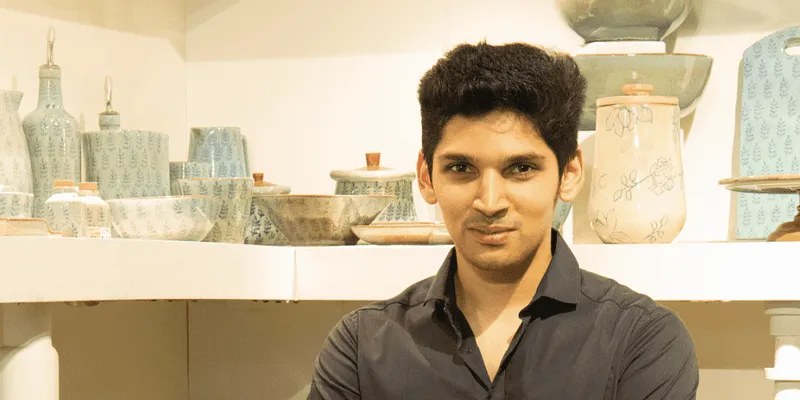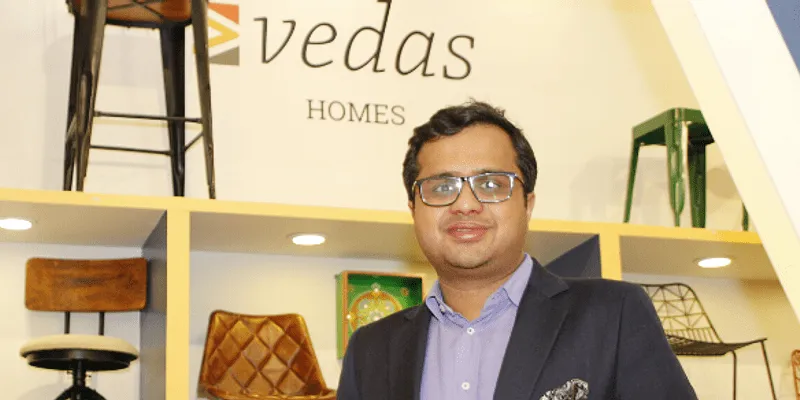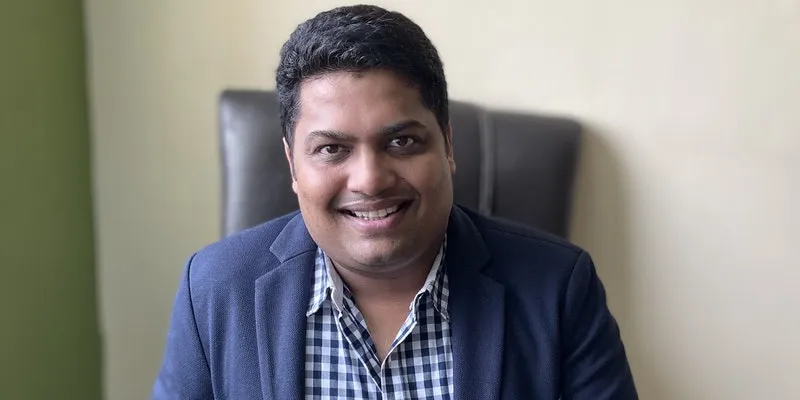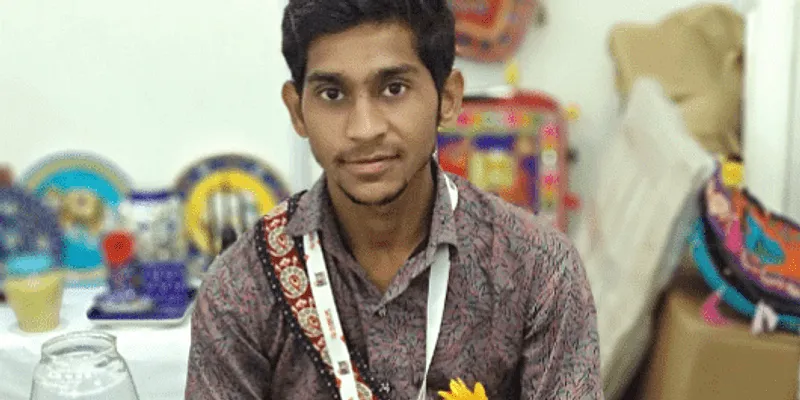[World Heritage Day] 10 Indian SMBs preserving the nation's traditional handicrafts and artisans
SMBs have started employing artisans and putting their creative minds to good use to preserve the tradition of handicrafts and provide artisans with stable income. This World Heritage Day, read the stories of ten such SMBs.
Celebrated every year on April 18, World Heritage Day promotes awareness about the diversity of our cultural heritage, and the efforts needed to protect it.
Handicrafts are an important part of India’s heritage and centuries of evolutionary traditions are manifested in the handicrafts made all over India. The sector has become an important part of the country’s economy, employing lakhs of artisans over the years.
However, artisans have been facing challenges such as inaccessibility of funds, low penetration of technology, absence of market intelligence, and poor institutional framework of artisan groups.
To address some of these challenges and provide stable employment and income to artisans, some Indian SMBs have started employing them and making good use of their creative minds and skilled hands.
This World Heritage Day, SMBStory lists 10 Indian SMBs that are protecting the livelihood of artisans and preserving India’s rich heritage:
Ellementry

Ayush Baid, Founder, Ellementry
For 24-year-old Ayush Baid, the son of Jaipur-based Indian handicrafts exporter Dileep Baid, it was natural to become interested in handicrafts. Watching his father run his Rs 175 crore turnover business, Dileep Industries, for three decades, exposed Ayush to the essence of Indian culture and art that was captured in handicrafts.
This motivated him to start , a lifestyle brand selling handicraft products primarily online, in 2018. The Jaipur-based company employs artisans to manufacture handmade home products such as kitchenware and serve ware.
The B2C brand has now become the retail offshoot brand of Dileep Industries. The brand claims to have recorded Rs 12 crore in sales in 2019-20.
Orvi

Sanjeev Aggarwal, Founder, Orvi
Hailing from a typical Marwari business family in Jaipur, it was natural for Sanjeev Aggarwal to run a business after completing education. In 1993, he started a business exporting stones to different countries. But, focusing only on material exports didn’t satiate his entrepreneurial hunger.
He says: “Having grown up in vibrant India and due to my travels around the world, I have had the privilege of experiencing some of history's finest architecture that has, sometimes, been neglected. Seeing first hand, the details, precision, and beauty that craftsmen have created within these spaces for centuries, inspired me to do something in this space.”
In 2014, Sanjeev started Surfaces for creating innovative surfaces, with a fine blend of craftsmanship and technology. Today, Orvi Surfaces works with more than 60 in-house artisans and uses varied traditional craft techniques from across the world.
Vedas Exports

Vedas Exports cofounder and director Palash Agarwal
When Palash Agarwal teamed up with his businessman father Pawan Agarwal to start a company, little did he know that they would sell only one product in the first month. Vedas Exports, started in 2014 in Ranchi, was seeing almost no traction with its wooden handicrafts and paintings.
The big break came when Palash and his father, upon exploring the handicrafts segment further, decided to jump into utility decor such as making wall hooks, shelves, mirrors, and table decor, among others.
Today, the 110-employee business manufactures handicrafts in Jodhpur, Rajasthan, and exports them to international markets such as the UAE, the US, and Europe. Vedas Exports made Rs 7.9 crore turnover in 2019, Palash says, adding that it has a presence in over 700 Indian stores and 500 global ones.
Ethnic Kraft

Reema Sodhi and Rajan Sodhi, Co-founders, Ethnic Kraft
Rajan Sodhi was working with Dunlop India in 1992 in Rajasthan when he fell for the state’s ethnic craft. Soon, he started collecting antiques, chandeliers, clocks, pocket watches, and artefacts from the havelis of Rajasthan. What began as a hobby eventually turned his side to entrepreneurship.
Rajan launched Ethnic Kraft along with his wife Reena Sodhi, an interior designer, in New Delhi in 1992. The business was bootstrapped with Rs 5 lakh.
From sofa and dining sets to beautifully carved jharokhas (windows) and Indian swings, the company manufactures and exports traditional hand-carved teakwood Rajasthani furniture.
Ethnic Kraft’s furniture range is passionately crafted by skilled artisans who have been involved in recreating the magic in wood for generations. It deals in both the B2B and B2C categories, and gets major sales from its retail store and exports. The company exports to countries like the US, the UK, Bulgaria, Australia, Kenya, and in the Middle East.
The Indian Ethnic Co

Lekhinee Desai and Hetal Desai, Cofounders, The Indian Ethnic Co
Founded in 2016 by mother-daughter duo Hetal and Lekhinee Desai, The Indian Ethnic Co is a sustainable fashion brand offering handcrafted apparel and lifestyle products created by rural artisans from across India.
The company was started as a passion project from a bedroom in the family home. It now runs three offices, ships products worldwide, and sustains the livelihoods of 1,000 artisans.
The company deals in handcrafted fabrics like Ajrakh, Bandhani, Bagh, Batru, Balotra, Dabu, Sanganeri, and more. It aims to revive dying smaller and unexplored handicrafts.
In just four years, the clothing brand is touching nearly Rs 10 crore in turnover, and comfortably dealing with 3,000 monthly orders.
Maitreya Inc

Samarth Chaturvedi, Founder, Maitreya Inc
In 2010, Samarth Chaturvedi started Maitreya Inc by bringing 145 painters and 70 sculptors from across India together. His vision was to build an online platform to bring their talent to the forefront, and sell to a wide range of customers. Along with his father, Birendra Nath Chaturvedi, Samarth put together a collection of over 700 antique pieces and more than 2,000 other artworks.
Maitreya onboards artists and their products on to the website, free of cost. The artwork is exposed to a wide range of potential buyers and collectors. The company charges artists 2 percent of the selling price.
“Ninety-eight percent is given back to artists so they have enough money to keep making great art and preserve our culture,” Samarth says.
Maitreya has quickly become a consistent manufacturer of top-quality bronze and stone sculptures, miniatures, and paintings.
eCraft India

Rahul Jain, Founder & Business Head, eCraftIndia
Rajasthani handicrafts had always mesmerised Rahul Jain, who hails from Jaipur. But, he found that, in Mumbai, the selling price of some handicraft items was up to four times higher than the actual cost. He was shocked to see that there were no fixed market rates for these products.
This experience spurred Rahul to set up his own ecommerce company, eCraftIndia.com, in a bid to collaborate with artisans and craftsmen and sell affordable products by cutting out the middlemen.
He saw this endeavour as an opportunity to consolidate the industry, and create a brand that would feature handicrafts from the length and breadth of the country.
Today, eCraft India retails home décor items, furnishings, furniture, paintings, kitchenware, and gifts, among others - all made by artisans. It has become one of the largest handicraft e-stores in India, clocking an annual turnover of Rs 12 crore.
Art Brute

Abhishek Ghosh Choudhury and Aniket Ghosh Choudhury, Co-founders, Art Brute
Art Brute is a multidisciplinary design lab set up by brothers Abhishek Ghosh Choudhury (36) and Aniket Ghosh Choudhury (32). Before setting up their studio in Auroville, the brothers started working with skilled local artisans who were experienced in making customised concrete planters.
Abhishek says the company collaborated with the artisans on projects where concrete was used as a material for developing functional products, suitable for both interior, and exterior decor.
The brothers employ artisans to make products using concrete, metal, wood, clay, hemp, etc, and the company has produced customised planters, coffee tables, bathroom tools, chairs, and more.
Art Brute aims to scale up over the next few years to generate more orders and employ more local artisans.
Tjori

Mansi Gupta, Co-founder and CEO, Tjori
Born out of her love for traditional handicrafts and apparel, and to cater to the global demand for Indian handcrafted products, 36-year-old Mansi Gupta started in 2013 in New Delhi.
While she was studying at Wharton School, University of Pennsylvania, Mansi saw a huge demand for Indian handicrafts abroad. However, she couldn’t find any Indian brand fulfilling that need.
Tjori is a multi-category, online-first, artisanal ethnic brand that sells apparel, wellness, home, and mother and child products.
Over 500 artisans and craftsmen contribute to Tjori’s collection today. Mansi says her website gets more than one million visits per month, and has a repeat customer base of 40-50 percent.
Tjori began with an investment of Rs 10 lakh from Mansi’s personal savings. In 2019, the business clocked an annual turnover of Rs 50 crore. It caters to 195 countries through digital marketing and its website.
Ramnarayan Blue Art Potteries

Vimal Prajapat, Ramnarayan Blue Art Potteries
Ramnarayan Blue Art Potteries was established in 1980 by Ramnarayan Prajapat, and continues to this day as a family business.
Blue pottery is a type of traditional craftwork intrinsic to Jaipur, and most of it is produced at Kot Jewar in Rajasthan. Tourists from across the world visit this village to marvel at the beautiful artisan work.
Talking about the business’ humble beginnings, 20-year-old Vimal Prajapat says:
“My family was very poor. My grandfather was a farmer, but couldn’t feed the family, and so my father started this pottery work. He went to Jodhpur to learn about blue art pottery and train.”
Ramnarayan Blue Art Potteries has nearly 250 rural artisans producing items such as bathroom sets, flower pots, hanging plates, bowls, trays, soap cases, planters, etc. The company employs women as well, and is now looking to bring more artisans of Kot Jewar, and neighbouring villages, under its fold.
Edited by Teja Lele


![[World Heritage Day] 10 Indian SMBs preserving the nation's traditional handicrafts and artisans](https://images.yourstory.com/cs/21/98e25df018b511e988ceff9061f4e5e7/collage4-1618638355762.png?mode=crop&crop=faces&ar=2%3A1&format=auto&w=1920&q=75)




